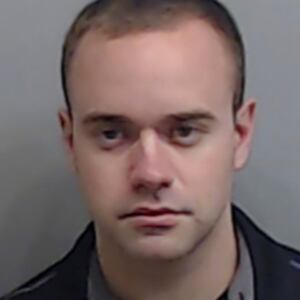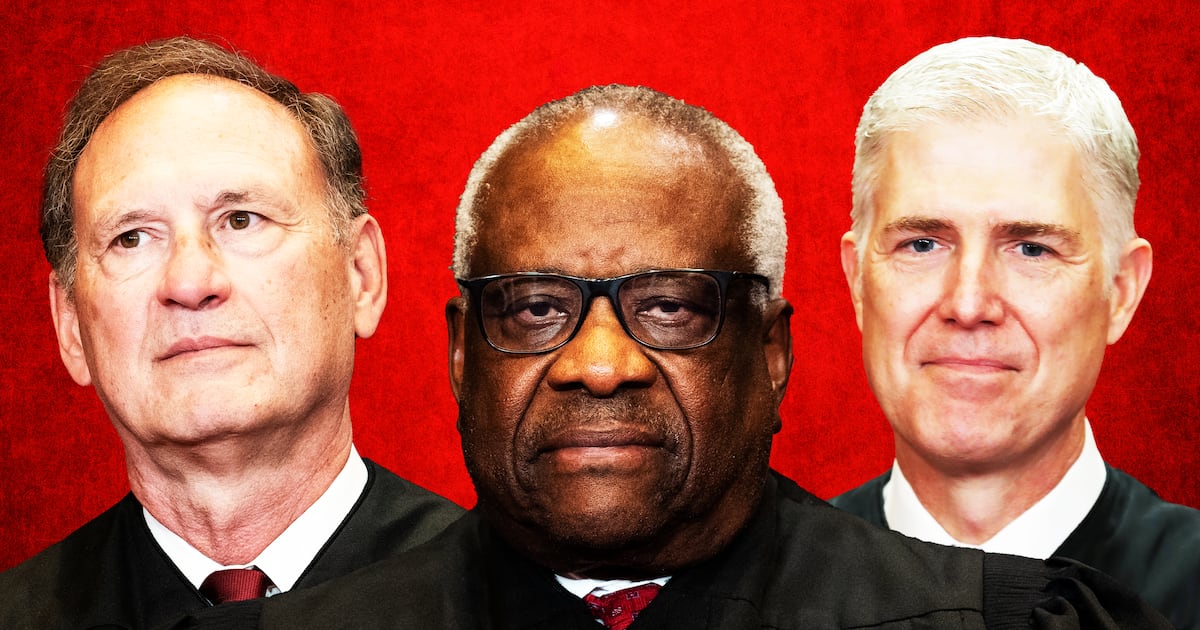More than two years after the shooting death of 27-year-old Rayshard Brooks sparked fiery protests across Atlanta, a special prosecutor says the officer who fired two shots into the Black man’s back will not be prosecuted for murder.
Atlanta officer Garrett Rolfe was allowed to protect himself from “great bodily harm” when he shot Brooks, Georgia special prosecutor Pete Skandalakis insisted on Tuesday. An aggravated assault charge was also dropped against a second officer at the scene, Devin Brosnan, who kicked Brooks.
The actions of the two officers, who are both white, were “objectively reasonable,” and they were permitted to use deadly force to protect themselves, Skandalakis said in a press conference.
ADVERTISEMENT
“Both acted as reasonable officers would under the facts and circumstances of the events of that night,” Skandalakis said. “Both acted in accordance with well-established law and were justified in the use of force regarding the situation.”
The special prosecutor claimed that Rolfe was authorized to fire at Brooks because he was violent with the officers, punching Brosnan hard enough to cause a concussion and stealing his taser. In the seconds before Rolfe opened fire, Skandalakis said, Brooks pointed the taser in the officer’s direction and discharged it.
Rolfe then fired three shots from his handgun, all within .56 seconds of each other, Skandalakis said. Two of them struck Brooks’ back, killing him.
“When a suspect threatens an officer with deadly force and then turns before the officer can respond with gunfire, the result can include gunshot wounds to the back,” Skandalakis said.
Brooks was killed on June 12, 2020, after Rolfe and Brosnan tried to arrest him in the parking lot of a south Atlanta Wendy’s, where he had fallen asleep in the drive-thru.
Condensed video played during Tuesday’s press conference showed officers having a calm conversation with Brooks for nearly 40 minutes.
The encounter escalated, however, when officers tried to arrest Brooks for driving drunk, Skandalakis said. That’s when the 27-year-old became violent, the prosecutor said, knocking off the body-worn cameras of both officers in a struggle while trying to flee. Moments later, Brooks discharged the taser toward officers, and he was shot dead.
Many were quick to criticize the special prosecutor’s decision to drop charges, including Georgia NAACP President Gerald A. Griggs, who says it should’ve been up to a jury to decide whether the Atlanta officers were guilty or not.
“Shooting a man in the back while he is running away with a non lethal weapon isn’t justifiable,” Griggs tweeted. “Present the case to a grand jury!"
Skandalakis was appointed to take over the case just last year, after a judge allowed former Fulton County District Attorney Fani Willis to recuse herself from the case. In leaving office, Willis said she was concerned about the actions of her predecessor, who announced a murder charge against Rolfe less than a week after the shooting.
Brooks’ death sent Atlanta, which was already reeling in the aftermath of protests for George Floyd’s murder by police in Minnesota, into further turmoil.
Atlanta Police Chief Erika Shield stepped down in the wake of Brooks’ death, and an exodus of Atlanta police officers soon followed, too. The killing also sparked weeks of fiery protests in the city that turned destructive at times, which included the burning of the Wendy’s where Brooks was shot.
Skandalakis acknowledged this context on Tuesday, saying the nation’s anger toward Floyd’s killing—just three weeks prior—affected the decision to charge Rolfe so quickly. The prosecutor said race relations in America can be “very volatile,” but insisted he doesn’t believe race played a role in this case.
“This isn’t one of those cases,” Skandalakis said. “This is a case in which the officers were willing to give Mr. Brooks every benefit of the doubt and, you know, unfortunately, by his actions, this is what happened.”







